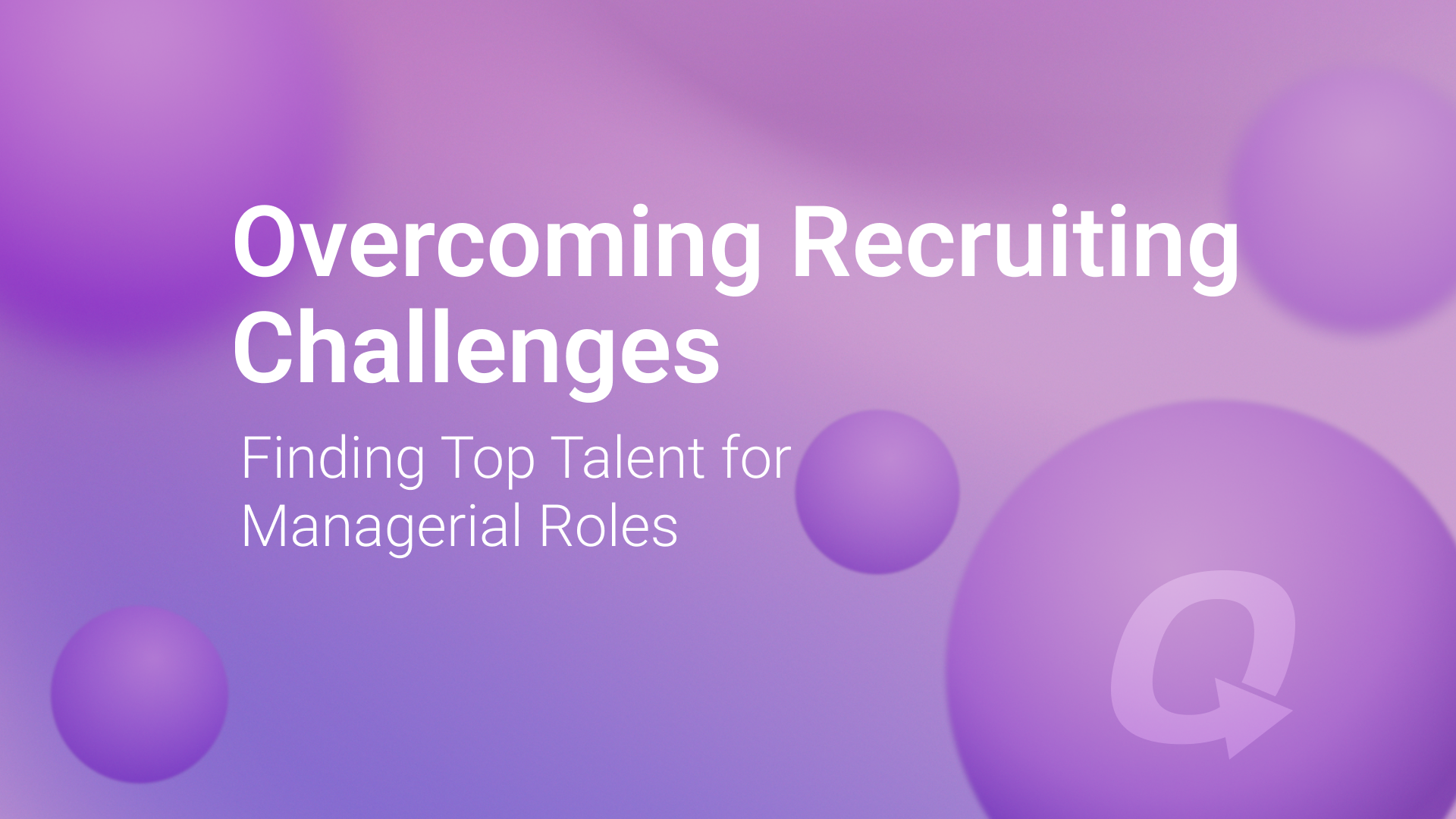For most companies, recruiting challenges are serious enough when trying to fill junior and mid-level positions. However, as the Olinio recruiting team knows, these challenges go to a totally different level when it comes to filling critical managerial roles.
In fact, around 74% of employers are struggling to find skilled and experienced managers and executive officers.
These talent acquisition challenges are compounded by the fact that the wrong hire can cost up to 200% of an individual’s annual salary and disrupt entire teams. Today, we will analyse the key challenges in recruitment for managerial roles and how to address them effectively.
1. Insufficient Qualified Applicants
Let us face it: you don’t find qualified candidates for top managerial positions on every street corner. What’s worse, standard job postings rarely attract candidates with the right combination of skills and experience.
Several factors cause this type of scarcity:
- the increasing complexity of managerial responsibilities
- the need for both technical expertise and soft skills
- the competitive market where top talent is often already employed.
To overcome this hurdle, you must take your recruiting strategy beyond standard job boards. Consider relying on:
- professional networks
- industry-specific platforms
- referral programs.
Also, focus on networking and building relationships with potential candidates well before positions become available. This approach creates a robust talent pipeline for future managerial openings.
2. High Volume of Offer Rejections
One of the biggest hiring challenges for managerial roles is the frequent rejection of job offers by qualified candidates. This is especially true for leadership positions where candidates often have multiple opportunities. This gives them the freedom to be selective about their next career move.
Offer rejections typically occur when there’s a mismatch between candidate expectations and what the company provides. This isn’t always about salary, but especially factors like:
- company culture
- growth opportunities
- work-life balance
- the company’s reputation.
Research, backed by Olinio’s direct experience in the recruiting field, shows that over 75% of job seekers check a company’s reputation before applying. Also, 69% of them would decline an offer from a company with a poor reputation.
Successful organisations solve this issue by developing compelling employer value propositions that highlight unique benefits beyond compensation. Some effective strategies include:
- regular salary benchmarking
- personalised offer discussions
- transparent communication about growth opportunities.
3. Unclear or Confusing Job Descriptions
Many job descriptions for managerial positions fall into the trap of being either too broad or too focused on technical requirements while neglecting leadership responsibilities. This confusion leads to misaligned expectations, wasted time in the interview process, and ultimately, poor hiring decisions.
Effective job descriptions should:
- focus on intended outcomes
- describe a typical day in the role
- articulate the impact the position will have on the organisation.
Using clear, concise language and avoiding industry jargon makes positions more accessible to qualified candidates from diverse backgrounds.
4. Competition from Other Companies
The talent acquisition challenges for managerial roles are intensified by fierce competition from other companies targeting the same pool of qualified candidates. Highly experienced candidates often receive multiple offers. This gives them significant leverage in negotiations.
Competition with other employers extends beyond salary considerations. Candidates for managerial roles are often at career stages where they prioritise:
- growth potential
- leadership development programs
- the chance to make meaningful contributions to organisational success.
Your company can gain a competitive edge by developing unique value propositions that resonate with managerial candidates. This might include:
- mentorship opportunities with senior executives
- clear pathways to higher leadership roles
- innovative projects
- the chance to build and lead new teams.
Employee testimonials and success stories from current managers can provide authentic insights that help candidates envision their future with the organisation.
5. Difficulty in Assessing Soft Skills
Perhaps the most complex of all recruiting challenges is effectively evaluating the soft skills that are crucial for managerial success. Traditional interview processes often fall short in assessing capabilities like:
- emotional intelligence
- team leadership
- conflict resolution
- strategic thinking.
This assessment challenge becomes even more critical for managerial roles, where the ability to inspire teams, navigate company politics, and drive change can determine success or failure.
To overcome this challenge, your company must adopt completely different assessment strategies that go beyond traditional interviews. Behavioural interview techniques using specific scenarios, peer evaluations, and structured assessment centres offer deeper insights into a candidate’s soft skills.
Olinio Can Help You Overcome Recruiting Challenges for Managerial Roles!
Hiring challenges for managerial roles are one of the biggest reasons why companies stall, although they have great growth potential. Don’t let this reason stop you from achieving success.
At Olinio, we have the know-how, tools and human touch necessary to create attractive job ads for top managerial talent and select the best fit for your vacancy. Contact us today and let us transform your recruiting strategy!

